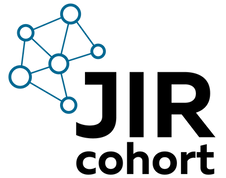Focus on science. JIR takes care of the rest.
Security & compliance
Secure and compliant Health Data Warehouse, aligned with international ethical and regulatory standards.
International research
A multicenter network of clinicians and researchers collaborating on international projects.
Modular platform
Dedicated modules for major paediatric-onset inflammatory and autoinflammatory diseases.
Continuous support
Scientific, technical, and regulatory support at every step.
Key figures
114+
participating centers
countries
14
patients
>15 000
publications
30+
.png)
A robust scientific,ethical, and regulatory framework
SCIENTIFIC
The Scientific Data Access Committee (SDAC) reviews and validates all projects and provides guidance on scientific design and project structuring.
OPERATIONAL
The JIR team manages the platform, data security, and user support, and provides hands-on assistance for:
-
protocol development,
-
statistical analysis plan drafting,
-
and data preparation prior to analysis.
From clinical data to scientific publication

A modular structure combining a transversal core
and disease-specific modules
1. Transversal module (for all patients) : shared core dataset applied to all patients, independent of diagnosis :
Demographic data
Diagnostic information
Treatments and treatment history
Adverse events
Complementary investigation
Comorbidities
2. Disease specific modules : dedicated modules including diagnostic criteria, disease activity scores, and longitudinal clinical and biological follow-up parameters.
Autoinflammatory diseases
Juvenile idiopathic arthritis
Still’s disease
Dermatomyositis
Kawasaki disease
Systemic Lupus erythematosus
Uveitis
Ongoing projects
Note : Patients in our database who prefer not to participate in specific projects are encouraged to communicate their choice to their physicians (please mention the project name). We respect and support your decisions regarding project involvement. Thank you for being part of our valuable medical research community."
Last publications
An international reference network for Juvenile Inflammatory Diseases
Created in 2013 by specialized European centers, the JIR Cohort (Juvenile Inflammatory Rheumatism) is now an international reference network dedicated to research on inflammatory and autoinflammatory diseases in children.
It enables the reuse of routine care data within a secure, harmonized, and well-governed framework.
JIR Support team

Francois Hofer
Data and project management

Sebastien Cavelot
Project Manager
Organigramme

A trusted framework for collaborative research
The JIR Cohort infrastructure — including the technical platform, legal framework, and operational team — is funded by Fondation RES.
Operational costs are covered through an overhead applied to funded research projects, ensuring long-term sustainability while maintaining access to a robust and secure infrastructure.

Estimated operating costs 2024–2025 : 190 000 CHF


